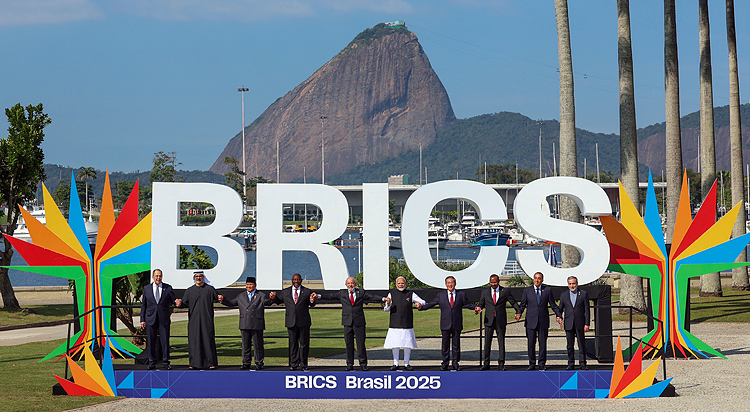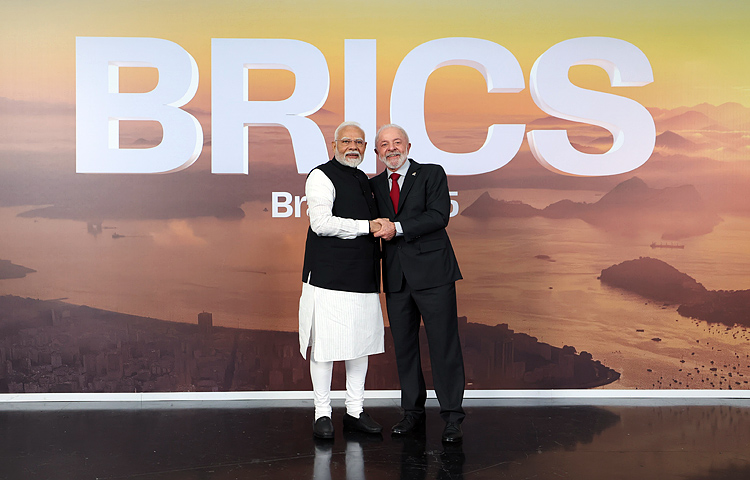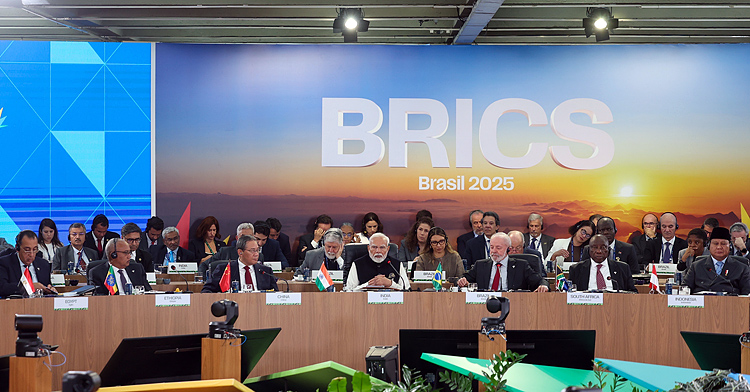INDIAN ARMED FORCES CHIEFS ON OUR RELENTLESS AND FOCUSED PUBLISHING EFFORTS

The insightful articles, inspiring narrations and analytical perspectives presented by the Editorial Team, establish an alluring connect with the reader. My compliments and best wishes to SP Guide Publications.

"Over the past 60 years, the growth of SP Guide Publications has mirrored the rising stature of Indian Navy. Its well-researched and informative magazines on Defence and Aerospace sector have served to shape an educated opinion of our military personnel, policy makers and the public alike. I wish SP's Publication team continued success, fair winds and following seas in all future endeavour!"

Since, its inception in 1964, SP Guide Publications has consistently demonstrated commitment to high-quality journalism in the aerospace and defence sectors, earning a well-deserved reputation as Asia's largest media house in this domain. I wish SP Guide Publications continued success in its pursuit of excellence.
- Prime Minister Modi Visits Punjab’s Adampur Air Base, Interacts with Airmen after Successful ‘Operation Sindoor’; Stern Message to Pakistan
- The layered Air Defence systems that worked superbly, the key element of Operation Sindoor
- Operation Sindoor | Day 2 DGMOs Briefing
- Operation Sindoor: Resolute yet Restrained
- India's Operation Sindoor Sends a Clear Message to Terror and the World – ‘ZERO TOLERANCE’
- Japan and India set forth a defence cooperation consultancy framework, talks on tank and jet engines
BRICS Leaders Rally in Brazil: A quest for an alternative world order
In a series of high-profile meetings and joint declarations, the BRICS leaders called for a multipolar world order that reflects the changing dynamics of global power. Whether they can translate words into lasting policy changes remains to be seen — but for now, their unity is sending a strong signal to capitals across the West that BRICS is here to stay.

World leaders from the BRICS alliance — Brazil, Russia, India, China, and South Africa — gathered in Brazil this week from July 6-7, for a pivotal two-day summit hosted by Brazilian President Luiz Inácio Lula da Silva.
Amid rising global tensions and economic uncertainty, the leaders presented a united front, challenging the dominance of Western powers on issues ranging from war and peace to global trade and governance.
Amid rising global tensions and economic uncertainty, the leaders presented a united front, challenging the dominance of Western powers on issues ranging from war and peace to global trade and governance.
India led a strong voice in the BRICS summit, which was reflected in the BRICS Leaders' Declaration, and was adopted in the Brazilian city on Sunday (July 6). It included India's key concerns, especially on cross-border terrorism and global governance reforms.
In a series of high-profile meetings and joint declarations, the BRICS leaders called for a multipolar world order that reflects the changing dynamics of global power.
With smiles and handshakes, BRICS' leadership expressed solidarity in pushing for reforms in international institutions, particularly the United Nations and the World Bank, which they argue disproportionately favour the West.
In a series of high-profile meetings and joint declarations, the BRICS leaders called for a multipolar world order that reflects the changing dynamics of global power.
"We are no longer willing to be mere spectators of decisions made elsewhere," President Lula declared during his opening remarks. "The world is changing — and we must ensure that our voices are heard in shaping that future."
The summit discussions were also marked by a coarse tone, particularly concerning ongoing conflicts in Eastern Europe and the Middle East. Without naming specific countries, the leaders criticised what they described as "selective interventions" and "double standards" in global diplomacy. Russian President Vladimir Putin, attending virtually due to international travel restrictions, condemned what he called "Western hypocrisy" in its approach to sovereignty and international law.

While Chinese President Xi Jinping was absent from the summit, he made statements on these sentiments, urging the bloc to "resist hegemonic pressures" and bolster South-South cooperation. "We must champion peace and development through dialogue, not coercion," Xi stated.
De-dollarisation—The alternative currency
Trade was another key focus, with discussions centring on reducing dependency on the US dollar and expanding the use of local currencies in cross-border transactions. The bloc also explored the possibility of a BRICS-led development bank expansion and greater investment in sustainable infrastructure across the Global South.
However, there is also a lack of consistent efforts on this, then having a wishful list of agenda among the BRICS members.
Trade was another key focus, with discussions centring on reducing dependency on the US dollar and expanding the use of local currencies in cross-border transactions.
In a recent interview given to the newspaper based in India, Brazilian Ambassador to India, Kenneth Felix Haczynski da Nobrega, voiced that the summit in Rio would focus on building intra-BRICS trade, climate change, artificial intelligence and fighting terrorism.

On the alternative currency, he remarked: "The grouping may look at adopting local currencies as an option for conducting trade, and it would be on a voluntary basis. BRICS has no plan to create an alternate currency."
Indian Prime Minister Narendra Modi also emphasised the need for a "fairer global trade regime" and called for technology sharing and cooperation in innovation, especially in sectors such as AI, green energy, and healthcare.
Prime Minister Modi called for a greater role for the developing world in the international order, pointing out that the Global South has often faced "double standards" and should have a greater voice in decision-making.
Prime Minister Modi called for a greater role for the developing world in the international order, pointing out that the Global South has often faced "double standards" and should have a greater voice in decision-making. He was addressing the BRICS session on Peace, Security, and Reform of Global Governance.
As the summit concluded, the leaders managed to issue a joint communique, reaffirming their commitment to multilateralism, non-interference, and inclusive global governance.
While the words may have sounded diplomatic, the message was clear: BRICS is ready to challenge the status quo against the Western-led financial and international institutions.
With their economies representing nearly 40 per cent of the world's population and more than a quarter of global GDP, the BRICS nations are increasingly positioning themselves as a counterbalance to Western influence.
With their economies representing nearly 40 per cent of the world's population and more than a quarter of global GDP, the BRICS nations are increasingly positioning themselves as a counterbalance to Western influence. BRICS has expanded to a club of 10 from the foundation 5 members.
Whether they can translate words into lasting policy changes remains to be seen — but for now, their unity is sending a strong signal to capitals across the West that BRICS is here to stay.
Manish Kumar Jha is a Consulting & Contributing Editor for SP's Aviation, SP's Land Forces and SP's Naval Forces and a security expert. He writes on national security, military technology, strategic affairs & policies.





